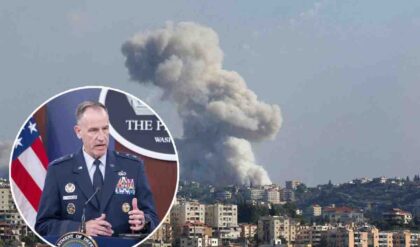The reverberations of the UK’s vote to leave the European Union will ripple through world geopolitics and economics for years to come. The extrication alone will take two years once the UK formally invokes Article 50 of the Treaty on European Union. In the near-term, Russian ruler Vladimir Putin has the most to gain from Brexit.
The truth is that the EU and UK never really had the best relationship. Intertwined in the UK’s decision to leave the EU there are the issues of cost of membership, trade, overall sovereignty and of course, immigration.
The UK’s exit from the European Union is not going to be pretty, according to EU. The maze of trade deals, tax matrices, employment and travel practices, environmental and product standards regimes (and the list goes on and on) will have to be unwoven. Meanwhile the UK will have to take that same yarn and weave many new policies, including individual trade deals with nations around the globe. It is going to be a wild ride. UK Prime Minister David Cameron who has announced his resignation following the Brexit vote., AP
UK Prime Minister David Cameron who has announced his resignation following the Brexit vote., AP
All this turmoil weakens the EU, and in doing so weakens ties and cooperation among NATO member states (22 NATO members are also members of the EU). This is precisely what Putin wants. Cracks in European unity will make it far easier for Moscow’s will to go unchecked. NATO headquarters in Brussles., AP
NATO headquarters in Brussles., AP
Take the harsh economic sanctions, which included asset freezes, travel bans and material embargoes, that were put in place following Russia’s invasion of Crimea and shadow-war in Ukraine. The EU was absolutely paramount in passing and imposing this regime. Not only that, but the UK, which has always been the USA’s best conduit for wielding power within the EU, will no longer be able to serve as a key middle-man. As a result, America’s own power is diminished within Europe with the UK’s decision to exit the EU. Going forward the “special relationship” between the US and the UK will have a much more limited, binary and centralized meaning than it had previously.
An increasingly divided Europe will mean it will be harder to not only pass sanctions against Russia or other states for various acts, but it will also make it much tougher to react quickly militarily to the Kremlin’s whims. This is especially troubling considering the realities of Russia’s ever evolving “hybrid warfare” playbook that could be put to work in the Baltics. In fact, some sources state that this is inevitable, including heads of European nations, and other key security players in Europe say that it is actually already underway. Even NATO’s last Secretary General, Anders Fogh Rasmussen, has said as much.
The Obama Administration and the US military seem to agree with Rasmussen’s assessment. In fact the head of European Command, General Scaparrotti, has come right out and said the Putin wants to break up NATO. Part of America’s response to this looming situation has been Operation Atlantic Resolve, which has resulted in a massive uptick in air, sea and land drills with NATO allies, especially those that exist along or near Russia’s western border. US Armor rolls through Eastern Europe., AP
US Armor rolls through Eastern Europe., AP
Now this increase in operations tempo is being further escalated, with Germany, the US and the UK moving 5,000 soldiers, or four battalions, to Lithuania, Poland, Latvia and Estonia. This is all part of a wider NATO effort to deter Russia which has been rapidly moving armor, jets and personnel to its borders under a series of snap drills.
The speed in which Russia is changing its force posture on Europe’s back doorstep may be what is most concerning for NATO generals. General Ben Hodges, who commands American soldiers in Europe states: “The thing I worry about the most is freedom of movement. Their snap exercises that they do, I personally am surprised each time they do it. And so you can see why that scares me.”
There is also a far more conventional threat emanating just east of the Germany, in Russia’s enclave of Kaliningrad. There, along the Baltic Sea, Russia has deployed nuclear capable Iskandar tactical ballistic missiles, and its most potent long-range air defense system, the S-400. Meanwhile, Russian air power has been anything but passive in the region.
All of these chess pieces, and the invisible threat of Russian cyber-attacks, are best countered by a strong and united Europe, not one that is pulling away from itself and mired in economic and political disagreements that are far from just academic. Putin knows this, and he also knows that an enemy is best attacked at its weakest point and when its resolve has atrophied. AP
AP
Increased economic turmoil in already hard-hit Europe could also drastically weaken each member country’s ability to fund their military and fulfil their obligations to NATO. The vast majority of NATO nations are already struggling to invest just 2% of their GDP into their military as required. If Europe were to fall back into a deep recession due to economic incertainty and trade gridlock caused by an unraveling EU, massive cuts in defense spending budgets, which have already shrunk to a shadow of their former selves, could become a harsh reality.
In the end Britain will survive, although defense exports may take a big hit along with others. British intelligence capabilities will also be affected by the loss of direct sharing via EU policing channels, but they will remain as part of the coveted “Five Eyes” international intelligence sharing consortium and benefit from continuing to have some of the best intelligence capacities of their own at their disposal in the guise of MI5, MI6 and others.
The UK’s strategic prominence within Europe and abroad may also dim following Brexit, but the intangible effects to Europe’s collective ability to stand as one militarily could be severely eroded depending on how things go.
With the potential erosion of the EU, the ominous and resource-depleting threat of terrorism hanging directly over Europe, and nationalist sentiment coming into fashion across the western world, Putin could not be handed a better set of circumstances for which to plan his next moves.
If the EU does indeed continue to splinter, and key powers within the EU deicide to follow the UK’s example, Moscow could take great advantage of chaos and infighting. Would a distracted, divided and economically diminished Europe going through immense change be ready to deal with a Russian incursion into the Baltics? It’s highly debatable as even dealing with such an event now would stress modern European alliances and military capabilities like never before.
It will be interesting to see how NATO plans to address all this at the upcoming summit in Warsaw on July 8th. We will keep you posted as things evolve.





